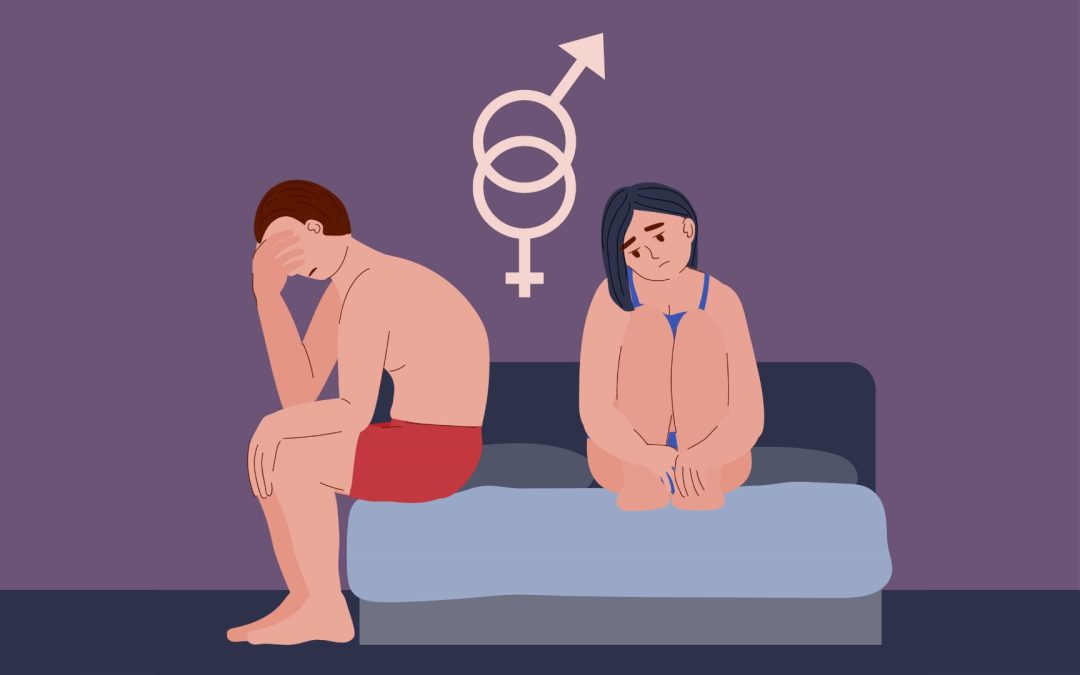Chlamydia, often referred to as the “silent” STI, is a common sexually transmitted infection that affects millions of people worldwide. Despite its prevalence, many individuals are unaware of the risks, symptoms, and necessary preventive measures associated with Chlamydia. In this comprehensive fact sheet, we aim to bridge the knowledge gap and empower readers to take informed action against this silent but significant health concern.
What is chlamydia?
Chlamydia, a prevalent sexually transmitted infection (STI), can affect individuals of all genders. If left untreated, it can lead to long-term consequences, particularly for women, including irreversible harm to the reproductive system. This damage can result in challenges or even infertility when attempting to conceive in the future. Additionally, Chlamydia carries the risk of potentially life-threatening ectopic pregnancy, where the fertilized egg implants outside the uterus.
How it is spread?
Chlamydia can be contracted through engaging in vaginal, anal, or oral sex with a person who is infected with the bacteria. It’s important to note that the transmission can occur even if there is no ejaculation during sexual activity. Additionally, it’s crucial to be aware that a pregnant individual who has chlamydia can pass the infection to their baby during the childbirth process.
Recognizing the Risks
Certain factors increase the risk of Chlamydia, including unprotected sex, multiple sexual partners, and a history of previous STIs.
Abstaining from vaginal, anal, or oral sex is the only sure-fire way to entirely avoid contracting sexually transmitted infections (STIs), including chlamydia. Below are the measures you can take to reduce the risk of acquiring chlamydia:
- Being in a committed and exclusive relationship with a partner who has tested negative for chlamydia.
- Consistently and correctly using condoms every time you engage in sexual intercourse.
These precautions can help lower the chances of contracting chlamydia and other STIs. However, it’s important to note that no method is fool proof, and regular testing for STIs is still advisable, especially if there is a change in sexual partners or any potential exposure to infection.
Common Symptoms:
Chlamydia is often asymptomatic, meaning it can be present in the body without causing noticeable symptoms. However, even in the absence of symptoms, it can lead to severe health complications. If symptoms do occur, they may not manifest until several weeks after engaging in sexual activity with an infected partner
In women, untreated chlamydia can cause damage to the reproductive system, even in the absence of symptoms. Common symptoms experienced by women with chlamydia may include:
- Abnormal vaginal discharge.
- A burning sensation during urination.
In men, symptoms of chlamydia can include:
- Discharge from the penis.
- A burning sensation during urination.
- Swelling & pain in one or both testicles (less common)
Chlamydia can also infect the rectum. This typically occurs through receptive anal sex or spread from another infected site, such as the vagina. While rectal chlamydia infections often do not manifest noticeable symptoms, they can cause:
- Rectal pain
- Discharge from the rectum
- Rectal bleeding
It is important to seek medical attention from a healthcare provider if you experiencing any of these symptoms,. Additionally, it is advisable to see a healthcare provider if your sexual partner has been diagnosed with an STD or displays symptoms of one. These symptoms may include:
- Unusual sores
- Foul-smelling discharge
- Burning sensation during urination
- Bleeding between periods
The Complications of Untreated Chlamydia:
Although the initial damage caused by chlamydia may go unnoticed, it can lead to significant health complications if left untreated. In women, untreated chlamydia can progress to pelvic inflammatory disease (PID), which can result in various complications, including:
- Formation of scar tissue that blocks the fallopian tubes, leading to infertility.
- Ectopic pregnancy, where the fertilized egg implants outside the womb.
- Long-term pelvic or abdominal pain.
- Increased risk of chronic PID (Pelvic Inflammatory Disease).
Men, on the other hand, generally experience fewer health problems from chlamydia. However, in some cases, the infection can lead to epididymitis, causing fever and pain in the tubes attached to the testicles. This rare condition can potentially result in infertility.
Furthermore, untreated chlamydia can increase the risk of acquiring or transmitting HIV, the virus that causes AIDS.
Treatment and Partner Notification:
Chlamydia infection can be effectively treated with antibiotics, typically within a week or two. However, it is crucial not to discontinue medication solely based on symptom improvement. It is recommended to consult your healthcare provider regarding the necessary follow-up steps to ensure the complete eradication of the infection even after finishing the prescribed course of antibiotics. This is important because chlamydia infection can recur.
As part of your treatment, it is crucial to take steps to prevent re-infection and ensure that any sexual partners who may be infected also receive appropriate treatment. Below are some important measures one should take:
Complete your medication: Take all prescribed medication as directed by your healthcare provider. Do not stop medication even if your symptoms have improved. Finish the full course of treatment to ensure the eradication of the infection.
Notify sexual partners: Contact any sexual partners you have had within the last three months and inform them about your chlamydia infection. Encourage them to seek medical testing and treatment promptly.
Undergo comprehensive STI testing: It is recommended to get tested for other sexually transmitted infections (STIs) such as HIV/AIDS, syphilis, herpes, and gonorrhoea. It is common to have multiple STIs, and it is crucial to receive tailored treatment for each infection. Discuss with your healthcare provider to ensure appropriate testing and treatment for any additional STIs.
Increasing awareness and understanding of Chlamydia is essential in combating this silent STI. By recognizing the risks, understanding the symptoms, and taking proactive steps such as prevention, regular testing, and timely treatment, individuals can protect their sexual health and contribute to reducing the spread of Chlamydia within their communities. Remember, from awareness to action, we all play a crucial role in tackling Chlamydia and promoting overall sexual health
Ref.:
Centers for Disease Control and Prevention (https://www.cdc.gov/)
Cleveland clinic (https://my.clevelandclinic.org/)

